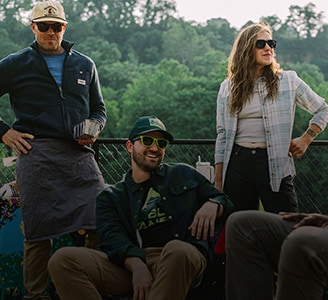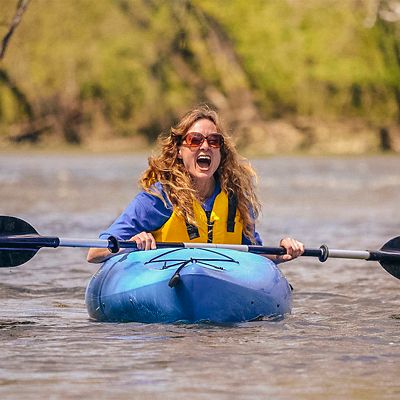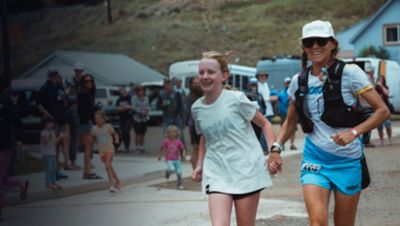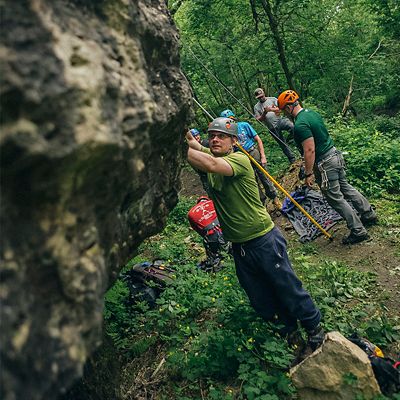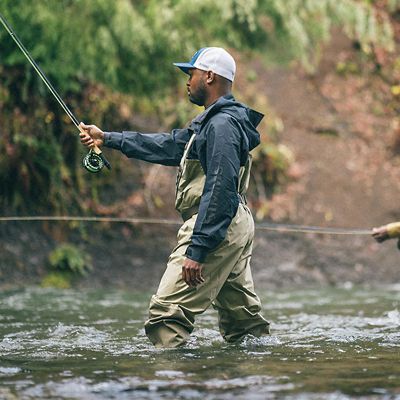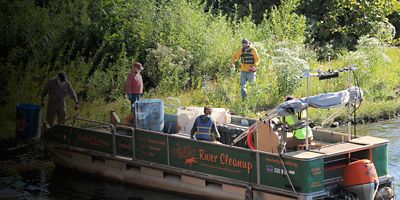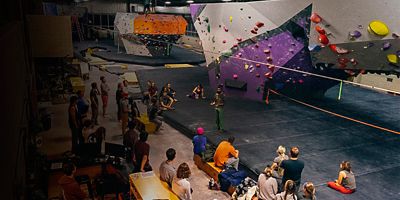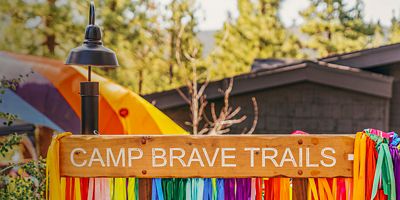Volunteer for a Cleanup
Calling all anglers and paddlers. Those same cherished creeks and rivers that offer such a simple escape from others also have a way of collecting everyone’s trash and depositing it elsewhere. Ditto for ponds and lakes. Go to americanrivers.org to find a local extension of the National Rivers Cleanup; these events run spring through fall. Connect with a local paddling club at American Whitewater and plug into stewardship events in addition to outings and social events. If you’re a rock climber, you’re also sharing spaces—know that the crag is a concentrated use area, and it often shows. Join the Access Fund or your local climbers org for crag cleanups and other programs. Become a climbing steward and help others understand best practices.
Plant a Tree
Trees don’t just fight flooding and global warming; they enhance any outdoor experience. Planting a tree is one of the most common, easy and satisfying ways to volunteer. And you get to see a living legacy of your work. Start by connecting with your city, county or state park system—most have regular volunteer opportunities. The Nature Conservancy has a goal to plant a billion trees and they need help doing it. Find your state chapter and ask about donating and volunteering. If you don’t have time to plant trees, donate to the National Forest Foundation, which has a goal to plant 50 million trees in U.S. national forests.
Engage in Citizen Science
You don’t need a Ph.D. to contribute to scientific research. Everyday citizens can collect vast troves of information, allowing scientists to access far more robust data sets than if they had to collect all the info themselves. The findings can be used to advocate for threatened species and protect public lands from inappropriate development. Start with an app you may already have on your phone, like Seek by iNaturalist or eBird. Look to a local college or university for opportunities to engage in research as a community member. The sky’s the limit—citizen scientists have discovered new planets while reviewing data for NASA’s citizen science projects.
Become an Activist
Many critical decisions about public lands—from their purchase to their protection status to access to the nature of their development—come down to policy. It’s imperative for outdoor adventurers to speak up and influence the direction of that policy. Most people can be the most effective at the grassroots level. Public Lands and Patagonia have joined forces in the 30x30 plan (to conserve at least 30 percent of U.S. public land and water by 2030). To this end, Public Lands supports local conservation and advocacy partner-grantees, providing ongoing volunteer opportunities in select markets, while Patagonia Action Works can connect you to more local environmental organizations nation-wide. And in an effort to join grassroots groups to have a greater impact, the Outdoor Alliance has brought together groups as seemingly disparate as the American Alpine Club and the Surfrider Foundation in order to amplify the voices of outdoor adventurers when it comes to policy decisions. Sign up for action alerts and learn how to contact your legislative representatives.
Find out how you can help give back at your local Public Lands store.
